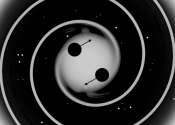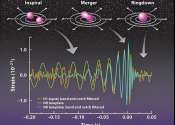Neutron-star mergers illuminate the mysteries of quark matter
Neutron stars are the remnants of old stars that have run out of nuclear fuel and undergone a supernova explosion and a subsequent gravitational collapse. Although their collisions—or binary mergers—are rare, when they ...









